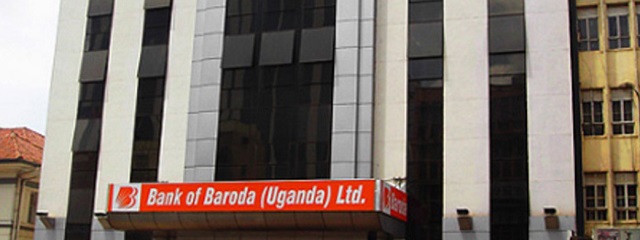
Bank of Baroda has recorded a 38% drop in net profit to Shs 45.3bn for the year ended Dec. 2019 but the management hope for better performance in future as it embarks on massive digitalisation.
Kampala, Uganda | ISAAC KHISA | The bank’s latest financial performance also shows that whereas its interest income increased from Shs 158.7bn in 2018 to Shs 162.6bn in 2019, its interest expense sharply rose from Shs 49.2bn to Shs 61.7bn during the same period under review.
This subsequently led to the lenders sharp drop in its interest income from Shs 109.5bn to Shs 100.8bn.
Though the lender could have mitigated against the sharp drop in net profit amidst increases in taxes and operating expenses, a surge in impairment allowance on financial assets saw it profits plunge.
The impairment allowance on financial assets increased from Shs 950million to Shs 3.14billion during the period under review.
Bank of Baroda Managing Director, Ashwini Kumar, said as the bank embarks on its 67th year operation in Uganda, its deposits and assets increased by 10.4% and 9.4% to Shs 1.45bn and Shs 1.87billion, respectively, compared with the previous year.
He said the lender is now looking forward to expand its footprint to the emerging markets in the country by leveraging on its strong position in the existing markets.
“In order to leverage the technology further, the Bank is going to replace ATMs with Cash Recycler machines in different parts of the country which will provide 24/7 cash deposit facility to our esteemed clients,” he said.
Cash Recycler machines are devices that looks exactly like any other ATMs. However, unlike ATMs—from which one can only withdraw cash, cash recyclers allow a client to deposit cash as well. And just as cash withdrawal at an ATM reflects in the clients account balance immediately, the cash deposit also takes place in real time and the transaction reflects in the client’s bank account at once.
Meanwhile, borrowers that might find difficulties to pay their loans due to coronavirus pandemic can negotiate with their financial institution for an extension for up to a year.
Adam Mugume, the acting deputy governor at the Bank of Uganda, said in the circulars issued on April 14 and April.17 that it is now evident that COVID-19 outbreak has affected the financial health of corporate entities and households across all sectors of the economy, and limited the ability of borrows to meet their debt obligation.
“This is a threat to the stability of the financial sector,” he said. “During this period of uncertainty, it is essential that the financial intermediation process goes on, and that credit is available to support otherwise viable commercial entities that are central to keeping Uganda’s economy running.”
Mugume said financial institutions are now allowed to restructure any credit facility twice effective this month, irrespective of the number of times it has been restructured in the past.
He said payment of arrears as a pre-condition for restructuring is temporarily suspended during this 12-month period.
“However, financial institutions are allowed to capitalize and recover this unpaid arrears less any unassociated penal interest or fees as part of credit facility restructuring,” he said, adding that a borrower, whose credit facility benefits from a restructuring may be liable to any legal fees and stamp duty associated with the restructuring.
He said the central bank has also extended by 180 days calendar days of write-off of credit facilities classified as loss, if the original write-off falls due within the 12 month period from April.01, 2020.
****
CLICK TO READ ONLINE MAGAZINE HERE
 The Independent Uganda: You get the Truth we Pay the Price
The Independent Uganda: You get the Truth we Pay the Price


